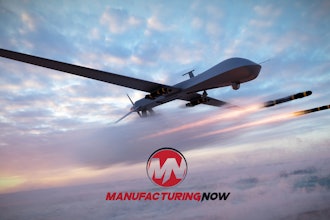Last week, Boom Supersonic announced a new three-year partnership with the U.S. Air Force to accelerate R&D on Overture, Boom's supersonic commercial airliner. The contract was awarded through the Air Force's innovation arm, AFWERX, specifically, the AFVentures division designed to help accelerate commercial technologies that could prove useful to the service. The program is built so that the military can serve as more of a developmental partner throughout the process rather than just buying specific acquisition targets.
Overture is designed to carry 65-88 passengers at Mach 1.7, twice as fast as any airliner today, with a range of 4,888 miles. Powered by sustainable aviation fuels, it could be the first large commercial aircraft to be net-zero carbon from day one. The plan is to begin manufacturing next year, roll out in 2025 and have passengers boarding the craft by 2029.
Boom received a Strategic Funding Increase (STRATFI) contract that is one of AFVentures's largest on record, according to the company. These contracts are known as the Air Force's "Big Bets" and go to companies considered the most promising. The funding will help speed design and development, like wind tunnel testing and
propulsion system definition.
The award represents a substantial increase in the Air Force's financial investment in Boom following an SBIR Phase 2 contract awarded in September 2020. The Phase 2 contracts are also known as the Air Force's "medium bets."
Two years ago, the Air Force awarded Boom a contract of an undisclosed sum to explore supersonic travel for Air Force executive transport. The Air Force manages all transport for top executive branch leadership, including Air Force One.
According to Boom CEO Blake Scholl, the new deal comes with the ability to collaborate with the Air Force to gain a better understanding of its requirements and needs for global military missions.
While fellow fast craft competitor Aerion Supersonic, which Boeing backed, closed its doors in early 2021, Boom has found some success, including a potential $3 billion deal with United Airlines for 15 supersonic aircraft.






















